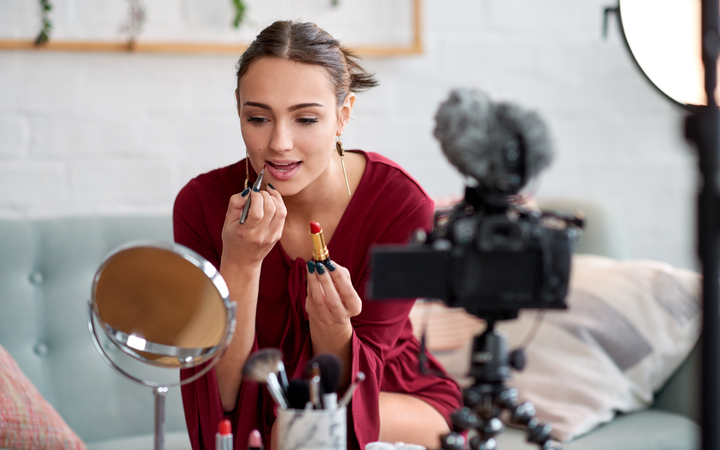The Impact of Influencer Marketing on Beauty Brands

The power of social media influencers has transformed the landscape of beauty marketing in recent years. As consumers increasingly turn to platforms like Instagram, YouTube, and TikTok for product recommendations and inspiration, influencer partnerships have become a crucial component of successful beauty brand strategies.
Influencer marketing harnesses the reach and credibility of social media personalities to promote products, drive engagement, and ultimately boost sales. By collaborating with influencers who have cultivated loyal followings and authentic connections with their audience, beauty brands can tap into a powerful source of word-of-mouth marketing.
In this article, we'll explore the impact of influencer marketing on the beauty industry, examining how these partnerships shape consumer behavior, build trust, and drive measurable results for brands. We'll also delve into the latest trends and best practices for executing effective influencer campaigns in the ever-evolving digital landscape.
What is Influencer Marketing in the Beauty Industry?
Influencer marketing in the beauty industry involves brands partnering with social media influencers to promote products, showcase their benefits, and engage with target audiences. These influencers, who have built substantial followings on platforms like Instagram, YouTube, and TikTok, are known for their expertise, authenticity, and ability to connect with their followers on a personal level.
Beauty influencers create a wide range of content that resonates with their audience—from in-depth product reviews and tutorials to before-and-after transformations and lifestyle vlogs. By showcasing products in action and sharing their genuine opinions, influencers help consumers make informed purchasing decisions and discover new brands that align with their preferences.
The power of influencer marketing lies in the trust and credibility that influencers have established with their followers. Unlike traditional advertising methods, which can be perceived as impersonal or sales-driven, influencer recommendations feel authentic and relatable. When an influencer genuinely loves a product and shares their experience, their followers are more likely to view the brand favorably and consider making a purchase.
Influencer marketing also allows beauty brands to reach niche audiences and tap into specific communities. Whether it's a micro-influencer with a highly engaged following in the clean beauty space or a mega-influencer known for their bold makeup looks, brands can strategically partner with influencers whose values and aesthetics align with their own. This targeted approach helps brands connect with consumers who are most likely to be interested in their products and message.
As the beauty industry continues to evolve, influencer marketing has become an essential tool for brands looking to stay relevant, build brand awareness, and drive sales. By leveraging the power of social media and collaborating with influential voices, beauty brands can create authentic, impactful campaigns that resonate with today's digital-savvy consumers.
The Growing Influence of Social Media on Beauty Consumers
Digital platforms have transformed the beauty landscape, with Instagram, YouTube, and TikTok leading the charge in product discovery and consumer engagement. These platforms have become essential for beauty enthusiasts to explore new products, trends, and techniques through highly visual and interactive content. The ability to access real-time feedback and tutorials has made these channels invaluable for consumers seeking both inspiration and practical advice.
The role of influencers in shaping consumer decisions on these platforms is undeniable. A significant portion of consumers today look to influencers for guidance, with nearly half considering their recommendations crucial when selecting beauty products. This shift highlights a move towards a more personal and engaging form of marketing where the influencer's perceived authenticity resonates deeply with audiences. Influencers provide not just product endorsements but also personal narratives and experiences that consumers find relatable and trustworthy.
For Gen Z, social media platforms serve as primary resources for beauty interactions, offering both community and information. Instagram and TikTok, in particular, have become central hubs where this demographic discovers trends and connects with creators who reflect their values and aesthetic preferences. This generation's reliance on digital content for beauty insights underscores the importance for brands to maintain a vibrant and responsive presence on these platforms, ensuring they remain relevant and accessible to a tech-savvy audience.
Building Trust and Credibility Through Influencer Partnerships
The transition from traditional advertising to influencer-driven campaigns has revolutionized how beauty brands establish rapport with consumers. Influencer endorsements resonate more profoundly with audiences due to their perceived authenticity and personal touch. In a landscape saturated with marketing messages, the genuine connections influencers cultivate with their followers offer a compelling and trustworthy alternative.
Influencers function as credible sources within their communities, providing insights based on real experiences rather than corporate scripts. This genuine approach appeals to consumers who actively seek influencers reflecting their own lifestyle and values. The resonance of influencers lies in their ability to engage followers who regard them as relatable figures rather than distant brand ambassadors.
For beauty brands, the selection of influencer partners is critical to achieving campaign success. Collaborating with influencers who embody the brand's ethos not only strengthens credibility but also ensures that communication appears seamless and sincere. This strategic alignment enables brands to access the influencer's dedicated audience, transforming followers into enthusiastic supporters. By capitalizing on these authentic interactions, beauty brands can enhance engagement and cultivate enduring loyalty, effectively navigating the intricacies of contemporary consumer dynamics.
Driving Sales and Conversions with Influencer Marketing
The strategic deployment of influencer marketing significantly enhances consumer purchasing activity, positioning it as a key driver for beauty brand success. Many consumers report that influencer endorsements play a pivotal role in their buying decisions, highlighting the importance of these partnerships in shaping consumer behavior. Influencers' ability to craft compelling narratives around products effectively translates curiosity into definitive purchasing actions.
Beauty brands can capitalize on the seamless journey from influencer content to purchase through the use of affiliate programs and in-app purchasing features. This integration simplifies the buying process, making it more intuitive for consumers to transition from interest to transaction with minimal friction. By embedding purchasing options directly within their content, influencers create a cohesive shopping experience that encourages impulsive, yet informed, buying decisions. This approach not only increases convenience for consumers but also provides brands with precise metrics to gauge campaign success.
The broader impact of influencer marketing on beauty brands goes beyond direct sales, fostering greater brand engagement and visibility. By accessing the established audiences of influencers, brands can reach new consumer segments that may remain untapped through conventional marketing methods. This expanded reach, coupled with the authentic endorsements by influencers, often results in a substantial uplift in both immediate and sustained brand revenue. Such outcomes underscore the strategic value of influencer partnerships as an integral element of contemporary beauty marketing initiatives.
Embracing Inclusivity and Diversity Through Influencer Collaborations
In the dynamic world of beauty marketing, inclusivity drives brand strategies and meets evolving consumer expectations. Through influencer collaborations, brands effectively champion diversity by featuring a broad array of skin tones, body types, and personal identities. Partnering with a varied group of creators allows brands to genuinely mirror the diversity of their audience, fostering connections with consumers seeking representation.
Inclusive influencer campaigns transcend visibility, cultivating a sense of community and acceptance among consumers. The beauty industry, once limited by rigid standards, now finds influencers integral in reshaping and challenging these norms. Influencers who celebrate and embody diversity offer compelling stories that encourage consumers to embrace their individuality. This alignment with contemporary social values not only bolsters consumer loyalty but also positions brands as innovative and proactive in a competitive landscape.
For beauty brands, leveraging diversity through influencer partnerships offers distinct benefits:
- Broadened Audience Engagement: Collaborating with a diverse range of influencers enables brands to reach untapped demographics, enhancing market reach and brand appeal across various consumer groups.
- Strengthened Brand Authenticity: Genuine representation of diverse identities enhances a brand's authenticity, building trust and fostering enduring consumer relationships.
- Cultural Resonance: Working with influencers who offer unique cultural insights enriches brand storytelling and ensures relevance in an increasingly global marketplace. This cultural connection not only distinguishes brands but also deepens emotional bonds with consumers.
The beauty industry's focus on inclusivity through influencer partnerships marks a significant move towards a more just and representative future.
The Rise of AI and Virtual Influencers in Beauty Marketing
Advancements in AI technology have ushered in the era of virtual influencers, marking a significant shift in beauty marketing. Digital personas like Lil Miquela and Shudu are at the forefront, offering brands an innovative approach to engaging audiences. These AI-driven figures allow for meticulously crafted and highly targeted marketing campaigns, providing a level of precision and adaptability that traditional methods may not achieve. This technology enables brands to maintain a consistent and controlled narrative, aligning seamlessly with shifting market trends and consumer preferences.
The utilization of virtual influencers presents distinct benefits for beauty brands seeking to differentiate themselves. These digital entities can embody a diverse range of looks and cultural narratives, providing brands with the flexibility to explore creative storytelling without the limitations faced by human influencers. The ability to tailor these personas to fit brand aesthetics precisely enhances campaign integration across various platforms. Moreover, virtual influencers eliminate the unpredictability associated with human behavior, offering a stable and reliable option for sustained brand engagement.
Despite the technological innovations presented by virtual influencers, the demand for authenticity and genuine human connection remains strong among consumers. While digital personas captivate with their forward-thinking allure, many consumers prefer the authenticity and relatability that human influencers bring. The emotional depth of shared experiences, heartfelt product endorsements, and genuine interactions continue to hold significant sway. For beauty brands, the challenge lies in harmonizing the cutting-edge capabilities of AI-driven influencers with the emotional resonance and trust that human influencers naturally provide.
Measuring the ROI and Effectiveness of Influencer Campaigns
Evaluating the success of influencer marketing in the beauty industry demands a focus on specific performance indicators. Metrics such as audience engagement and brand visibility offer insights into how well campaigns resonate with target audiences. Engagement rates reflect the level of interaction with content, while reach quantifies the extent to which the campaign spreads across potential customer bases. Additionally, tracking conversion rates and increases in sales directly ties campaign actions to tangible business outcomes.
Utilizing sophisticated analytics platforms and influencer marketing technologies provides brands with the tools needed to refine strategies and enhance efficiency. These resources offer detailed performance data, enabling brands to identify which influencer collaborations yield the best results. By analyzing these datasets, brands can adjust their approaches, ensuring that marketing efforts are concentrated on partnerships and content that drive optimal returns. This method allows for a precision-focused strategy, enhancing the allocation of marketing resources.
Adopting a data-centric approach to both influencer selection and campaign assessment is essential for optimizing marketing impact and achieving desired financial outcomes. Through comprehensive analysis of past campaign data, brands can uncover successful strategies and apply these insights moving forward. This informed methodology not only strengthens influencer partnerships but also enhances overall marketing effectiveness. As the beauty sector continues to advance, maintaining a data-driven mindset will be key to sustaining competitive advantages in influencer marketing.
As the beauty industry continues to evolve, influencer marketing will remain a crucial component of successful brand strategies. By leveraging the power of authentic partnerships, embracing inclusivity, and harnessing the potential of AI-driven innovations, beauty brands can create impactful campaigns that resonate with today's digital-savvy consumers. If you're ready to elevate your influencer marketing efforts and drive measurable results, sign up to start optimizing your influencer marketing campaigns with us at ryme.ai—we're here to help you navigate this exciting landscape and achieve your brand's full potential.

